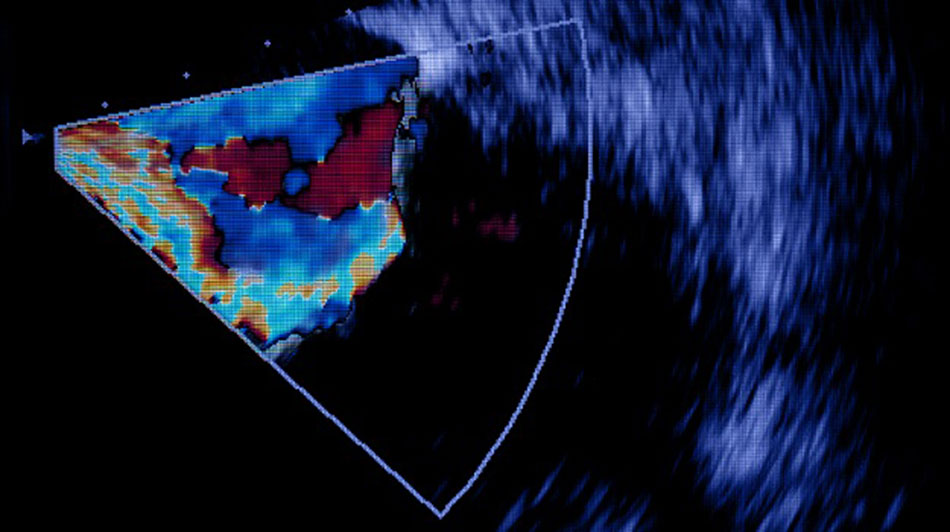Is it Worth Pursuing Advanced Training in Echocardiography?
Oct 2, 2017 | Juan C. Lopez-Mattei, MD, FACC
Feature Article
Post-graduate training in advanced echocardiography has a relevant role in advancing quality of care due to recent technical advances in echocardiography, as well as in advancing the treatment of valvular heart disease. Advanced echocardiography fellowships in cardiology are non-ACGME accredited. Echocardiography has evolved significantly from the m-mode days to include 3D, strain and contrast echocardiography.
Most centers that provide ACGME accredited training for cardiovascular disease allow the cardiology fellow to acquire at least level II competence in echo. Level II competence is required to practice echocardiography independently (see Table 1 for requirements of each level of competence) and qualify for echo board certification.
 Stock photo
Stock photo
According to the ACC/AHA Clinical Competence Statement on Echocardiography, they define level III competence in echocardiography as a “high level of expertise that would enable an individual to serve as a director of an echocardiography laboratory and be directly responsible for quality control and for the training of sonographers and physicians in echocardiography.”
The American Society of Echocardiography (ASE) has developed multiple guidelines to standardize the practice of echocardiography and broad topics include: assessment of structure and function, disease-based, quality/education, technique-based and pediatrics/neonatal/congenital. Such sophistication and complexity creates a challenge for general cardiologists to remain up-to date, especially with a busy clinical practice and limited bandwidth.
Recognizing the complexity, as well as different backgrounds and practices, the National Board of Echocardiography (NBE) developed different certifications for clinical cardiologists including: adult transthoracic, transthoracic/transesophageal, transthoracic/stress echo and comprehensive (transthoracic, transesophageal and stress echo).
"According to the ACC/AHA Clinical Competence Statement on Echocardiography, they define level III competence in echocardiography as a 'high level of expertise that would enable an individual to serve as a director of an echocardiography laboratory and be directly responsible for quality control and for the training of sonographers and physicians in echocardiography.'"
Traditionally, echocardiography fellowships offer opportunities for research and clinical experience, bearing in mind that candidates may desire to follow an academic career. There are two paths of obtaining level III competence in echocardiography during general cardiology fellowship by completing most elective time focusing on echo, or during an advanced echo fellowship which requires an additional one or two years of training.
The latter path is better suited for trainees that do not have the option of completing required elective time during their general cardiology fellowship or for those with an interest in an academic career.
The most recent COCATS 4 Task Force 5: Training in Echocardiography statement defines specific skills that should be expected from a level III echocardiographer. The specific skills include knowing the findings of complex/post-operative congenital heart disease, intra-operative transesophageal echocardiography skills and use of 3D echocardiography during guidance of procedures or surgery. Given recent trends towards re-evaluating reimbursements and appropriate use criteria, there may be instances where the value and complexity of advanced echocardiography is being underestimated as a tool to provide quality and efficient patient care.
The Intersocietal Accreditation Commission, which is the main accreditation body for echocardiography laboratories in US, has specific requirements for Medical Directors of an Echo Lab. It requests all cardiologists that are interested in becoming a medical director and were not certified as level II/III in echo during their training, to pass the echo board or have significant clinical experience in echo (at least a total of 1800 echo interpretations). Most of the cardiologists trained are currently able to meet level II competence. Limitations in accessibility to level III echocardiographers might be why it is not mandatory for the medical director of an echo lab to have level III skills.
Given advanced training, level III echocardiographers are integral in evaluation and management of structural heart disease, including TEE guidance of structural heart procedures and involvement in valve clinics. Advanced echocardiographers aid in the interpretation of challenging echocardiograms or the cases which require more dedicated valve quantification. During recent years, there has been a notable increase in job opportunities for “fellowship trained” non-invasive cardiologists, level III multi-modality imagers (echo, CT and MRI mainly) and medical directors of respective imaging modalities. In certain academic hospitals and practices, there is precedence to request level III competence in order to have reading and procedural privileges in the echo lab.
Generally, it is not practical to restrict the practice of echocardiography exclusively to level III echocardiographers, as level II skills are more than adequate to provide excellent quality interpretations. Although for accreditation purposes, board certification in echocardiography could become mandatory in the future, which could be a positive step in improving the standardization of echocardiography. The role of level III echocardiographers is more a collaborative model between the imager and other members of their cardiology practice. It consists more in assessing the technical quality of certain studies, clarifying doubts in interpretation and performing more complex assessments using advanced techniques, such as 3D and strain as deemed appropriate.
For the cardiology fellows interested in pursuing a fellowship in echocardiography, the future could not be more exciting. The treatment of structural heart disease will continue to develop opportunities for advanced echocardiographers. Newer and more advanced techniques in 3D, strain and contrast echo will require greater expertise for clinical implementation.
*Adapted from COCATS 4 Task Force 5: Training in Echocardiography
Tweet this article: Tweet
This article was authored by Juan C. Lopez-Mattei, MD, FACC, cardiologist at the University of Texas MD Anderson Cancer Center in Houston, Texas.

